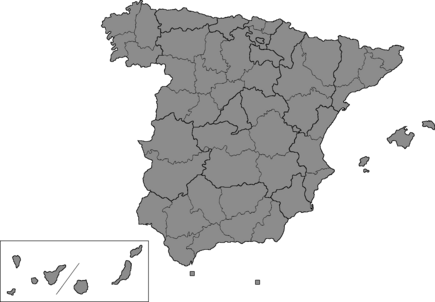Next Spanish general election
|
|
|||||||||||||||||||||||||||||||||||||||||||||||||||||||||||||||||||||
|---|---|---|---|---|---|---|---|---|---|---|---|---|---|---|---|---|---|---|---|---|---|---|---|---|---|---|---|---|---|---|---|---|---|---|---|---|---|---|---|---|---|---|---|---|---|---|---|---|---|---|---|---|---|---|---|---|---|---|---|---|---|---|---|---|---|---|---|---|---|
|
|||||||||||||||||||||||||||||||||||||||||||||||||||||||||||||||||||||
|
All 350 seats in the Congress of Deputies and 208 (of the 265) seats in the Senate 176 seats needed for a majority in the Congress of Deputies |
|||||||||||||||||||||||||||||||||||||||||||||||||||||||||||||||||||||
| Opinion polls | |||||||||||||||||||||||||||||||||||||||||||||||||||||||||||||||||||||
|
|||||||||||||||||||||||||||||||||||||||||||||||||||||||||||||||||||||

Constituency results map for the Congress of Deputies
|
|||||||||||||||||||||||||||||||||||||||||||||||||||||||||||||||||||||
|
|||||||||||||||||||||||||||||||||||||||||||||||||||||||||||||||||||||
The next Spanish general election will be held no later than Sunday, 26 July 2020, as provided by the Spanish constitution and the Organic Law of the General Election Regime of 1985. It will open the 13th Legislature of Spain, to elect the 13th Cortes Generales of the Kingdom of Spain. All 350 seats in the Congress of Deputies will be up for election, as well as 208 of 266 seats in the Senate.
The 2016 election proved inconclusive, with the People's Party (PP) coming out strengthened but with neither the PP–C's nor the PSOE–Unidos Podemos blocs being able to command a large enough majority to ensure governance alone. In the end, after a 10-month political deadlock, Mariano Rajoy was able to become Prime Minister thanks to PSOE's abstention, after the party suffered an internal crisis which resulted in the ousting of its leader, Pedro Sánchez.
The Spanish Cortes Generales are regarded as an imperfect bicameral system. The Congress of Deputies has greater legislative power than the Senate, having the ability to grant or revoke confidence from a Prime Minister and to override Senate vetoes by an absolute majority of votes. Nonetheless, the Senate possesses a few exclusive, yet limited in number functions—such as its role in constitutional amendment—which are not subject to the Congress' override.
...
Wikipedia






